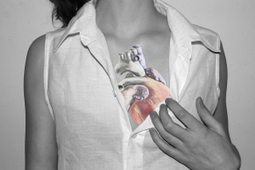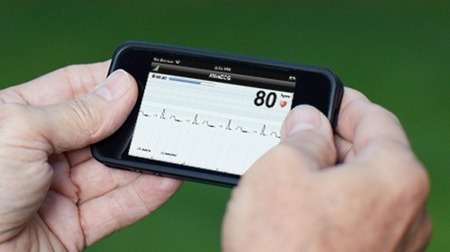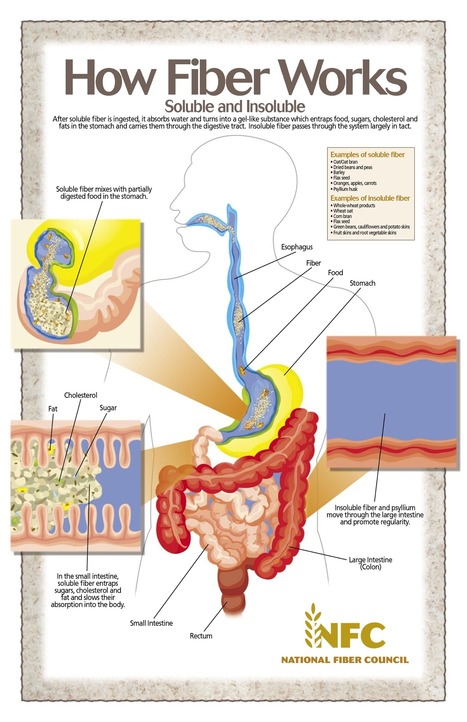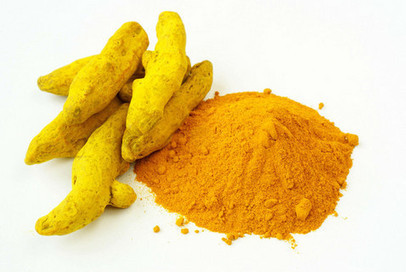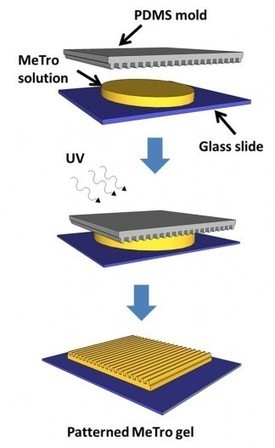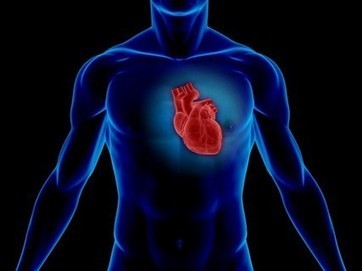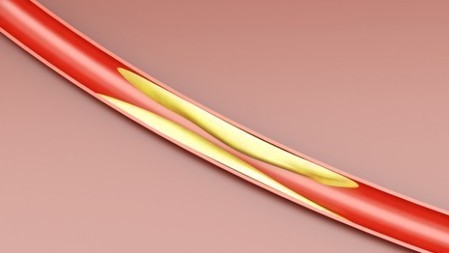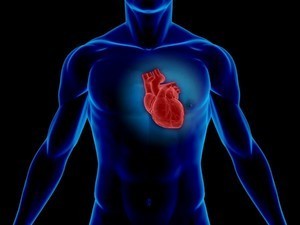 Your new post is loading...
 Your new post is loading...
Researchers were surprised to find that people with Type 2 diabetes who lost a lot of weight didn't lower their risk of heart attacks or strokes. They did have better control of their blood sugar and saw other health benefits.
Coenzyme Q10 (CoQ10) cuts mortality by half in patients with heart failure, researchers from Denmark reported at the annual meeting of the Heart Failure Association of the European Society of Cardiology, which took place in Lisbon, Portugal this year.
Professor Svend Aage Mortensen and team explained that Coq10 is the first medication to improve heart failure mortality in over ten years and should be included in standard treatment. CoQ10 is an essential enzyme that occurs naturally in the body. It works as an electron carrier in the mitochondria, the energy-producing powerhouse of cells, to produce energy. CoQ10 is also a potent antioxidant.
Bottling up emotions is thought to harm both mind and body, but a new study suggests that doing the opposite may be no better. In a study of nearly 4,000 heart attack patients, those who recalled having flown into a rage during the previous year were more than twice as likely to have had their heart attack within two hours of that episode, compared to other times during the year.
Researchers said on Tuesday they planned to enroll patients into two new clinical trials using Mydicar, a gene therapy treatment made by privately held U.S. biotech company Celladon.
After more than 20 years of research, the ground-breaking method for fixing faulty genes is starting to deliver, with European authorities approving the first gene therapy for an rare metabolic disease last November.
In the case of heart failure, the aim is to insert a gene called SERCA2a directly into heart cells using a modified virus, delivered via a catheter infusion. Lack of SERCA2a leads to ever weaker pumping in people with heart failure.
Women with breast cancer who had a few alcoholic drinks per week before their diagnosis were slightly less likely to die from their cancer, according to a study that followed newly-diagnosed patients for 11 years, on average.
Moderate drinking before and after a breast cancer diagnosis was also tied to better heart health and fewer deaths from non-cancer causes, the study team found.
Researchers at the University of California, San Francisco (UCSF) are recruiting a million participants to join a decade long heart health study. The enabling factor? Smartphones. It’s a great example of information technology bleeding into other fields and speeding their progress. If all goes to plan, the UCSF study (dubbed Health eHeart) will be the broadest such study ever completed.
Stem-cell therapy for damaged hearts is a brilliant idea whose time has not yet come. The problem: no way to ensure against faulty initial placement of the stem cells.
Stanford’s Sam Gambhir, PhD, MD, who heads Stanford medical school’s Department of Radiology may have found a way around it.
“You can use ultrasound to visualize the needle through which you deliver stem cells to the heart. But once those cells leave the needle, you’ve lost track of them,” he said.
How to lower your blood pressure without prescription drugs
AliveCor’s smartphone Heart Monitor has received FDA approval and will go on sale to healthcare professionals in the United States in January 2013. The AliveCor Heart Monitor allows the recording, display, storing, transferring, and evaluation of single-channel electrocardiogram (ECG) rhythms using an iPhone 4 or 4S. The Class II medical device consists of a self-powered case that attaches to the back of an iPhone, which is running the associated heart monitor app. The phone and case communicate with one another wirelessly, though the phone doesn't need to be paired to the device.
According to research, more dietary fiber, but not necessarily less saturated fat or cholesterol, is tied to a lower risk of heart disease and type-2 diabetes in teenagers.
Via Nutritional Info
(Reuters Health) - Danish cancer patients taking cholesterol-lowering statin drugs were 15 percent less likely to die, of cancer or any other cause, than patients who were not on the popular medications, in a new study. The pattern held regardless of a person's age, cancer type, tumor size or whether it had spread. Only patients who had received chemotherapy showed no apparent benefit from taking statins - the most commonly-prescribed drugs in the world.
Could three or four cups a day spell better health in your future? Tea leaves contain high levels of flavonoids and can benefit your heart, brain, bones, and more. ●It helps your heart by keeping blood vessels unclogged and flexible. Blood pressure and stroke risk were reduced in epidemiological and clinical studies...
Consuming fish at least once a month, and increased blood levels of ALA and DPA, may reduce the risk of heart failure, says a new study that adds to the heart health benefits of omega-3. This study focused on ALA and DPA, a little-known omega-3.
|
Daily supplements of curcumin – the natural pigment that gives the spice turmeric its yellow color – may support healthy aging, with two new studies indicating benefits for arterial aging and cognition.
Cardiac stress, for example a heart attack or high blood pressure, frequently leads to pathological heart growth and subsequently to heart failure. Two tiny RNA molecules play a key role in this detrimental development in mice, as researchers at the Hannover Medical School and the Göttingen Max Planck Institute for Biophysical Chemistry have now discovered. When they inhibited one of those two specific molecules, they were able to protect the rodent against pathological heart growth and failure. With these findings, the scientists hope to be able to develop therapeutic approaches that can protect humans against heart failure. The scientists involved in this study had observed that these microRNAs are more prevalent in the cardiac muscle cells of mice suffering from cardiac hypertrophy. To determine the role that the two microRNAs play, the scientists bred genetically modified mice that had an abnormally large number of these molecules in their heart muscle cells. "These rodents developed cardiac hypertrophy and lived for only three to six months, whereas their healthy conspecifics had a normal healthy life-span of several years," explained Kamal Chowdhury, researcher in the Department of Molecular Cell Biology at the Max Planck Institute for Biophysical Chemistry. "For comparison, we also selectively switched off these microRNAs in other mice. These animals had a slightly smaller heart than their healthy conspecifics, but did not differ from them in behaviour or life-span," continued the biologist. The crucial point is when the scientists subjected the hearts of these mice to stress by narrowing the aorta, the mice did not develop cardiac hypertrophy – in contrast to normal mice. The scientists were also able to protect normal mice against the disease. When they gave them a substance that selectively inhibits microRNA-132, no pathological cardiac growth occurred – even when the hearts of these mice were subjected to stress. "Thus, for the first time ever, we have found a molecular approach for treating pathological cardiac growth and heart failure in mice," said the cardiologist Thomas Thum, MD, Director of the Institute for Molecular and Translational Therapy Strategies (IMTTS) at the Hannover Medical School. With these findings, the researchers hope that they will be able to develop therapeutic approaches that can also protect humans against heart failure. "Such microRNA inhibitors, alone or in combination with conventional treatments, could represent a promising new therapeutic approach," said Thum. "In mice with an overdosage of the two microRNAs in their heart muscle cells, the cellular ‘recycling program' is curbed," explained Ahmet Ucar, who together with Shashi K. Gupta was responsible for the experiments. In this recycling process, the cell breaks down components that are damaged or no longer required and reuses their constituents – a vital process that, for example, ensures the organism’s survival under stress conditions. In mice without the microRNAs -212 and 132, this recycling program is more active than in their normal conspecifics. Conceivably, the reduced cellular recycling could be a cause of the observed cardiac hypertrophy.
Via Dr. Stefan Gruenwald
One of the things that makes heart disease so problematic is the fact that after a heart attack occurs, the scar tissue that replaces the damaged heart tissue isn’t capable of expanding and contracting – it doesn’t “beat,” in other words. This leaves the heart permanently weakened. Now, however, scientists from Harvard-affiliated Brigham and Women's Hospital (BWH) have developed artificial heart tissue that may ultimately provide a solution to that problem.
At the base of the material is a rubbery gel known as MeTro. It’s made from tropoelastin, which is the protein that gives human tissues their elasticity.
A systematic review by the Mayo Clinic has said that L-Carnitine can reduce mortality, abnormal heart rhythms and angina development in patients experiencing a heart attack.
A new study suggests adults with the highest levels of omega-3 fatty acids in their blood are less likely to die from a range of causes than those with the lowest levels. Researchers found people with the most circulating omega-3s - usually found in oily fishes such as tuna or sardines - lived about two years longer than those with the lowest levels, on average.
Most people who stop taking cholesterol-lowering statins - because of side effects or for another reason - are able to restart the same drug or a similar one without lasting problems, a new study suggests.
That's important because for people who need statins, quitting them for good increases the chance of serious heart problems, researchers said, so doctors and patients should think carefully before letting milder reactions lead them to give up on the drugs altogether.
Combining probiotic Lactobacillus rhamnosus GG supplements with aloe vera may slash cholesterol levels by over 40%, suggests a new study with lab rats.
Heart attack and stroke-causing plaque deposits in the arteries are typically preceded by an inflammation of the arteries in those same areas. Therefore, if doctors could be aware of those inflamed regions before plaque deposits formed and problems such as chest pains arose, a lot of hardship could potentially be avoided. Well, that soon may be possible, thanks to some tiny bubbles. In tests conducted at the University of Missouri’s College of Veterinary Medicine, assistant teaching professor Isabelle Masseau started out with perfluorocarbon gas-containing, lipid-shelled “micro-bubbles.” Each of those bubbles measured just two to three microns in diameter.
Data from randomized trials support the ability of co-enzyme Q10 (CoQ10) to improve heart function in people with congestive heart failure (CHF), say scientists from Tulane University in New Orleans. The authors caution that the results are based on a small number of clinical trials, and that the benefit may be greatest for less severe cases of heart failure.
Although there have been conflicting reports on the benefits of omega-3 fish oil, a new study indicates that it’s still a good idea to take the supplement. Scientists at the Linus Pauling Institute of Oregon State University analyzed studies of omega-3 fish oil supplements and reached several conclusions. They said that taking the supplement, as well as eating fatty fish, may prevent heart disease, and that the supplement could be beneficial for serious health problems besides heart disease. Linus Pauling Research: http://lpi.oregonstate.edu/infocenter/othernuts/omega3fa/
Stem cells culled from the bone marrow of healthy donors work as well or even better as cells harvested from patients themselves as a treatment for damaged hearts and are more convenient to use, according to new research. The 13-month trial was the first to compare the safety and effectiveness of so-called mesenchymal, or bone marrow-derived, stem cells taken from patients themselves versus those provided by donors.
Curcumin extracts of turmeric are proposed to produce health benefits. To date, human intervention studies have focused mainly on people with existing health problems given high doses of poorly absorbed curcumin. In this small study, absorbable low doses of curcumin were seen to produce positive effects in healthy middle aged people. The results of the small study indicate that curcumin helps to protect health heart, brain, and immune system function.
>Disilvestro RA, Joseph E, Zhao S, Joshua B. Diverse effects of a low dose supplement of lipidated curcumin in healthy middle aged people. Nutr J. 2012 Sep 26;11(1):79. [Epub ahead of print]
|
 Your new post is loading...
Your new post is loading...
 Your new post is loading...
Your new post is loading...








